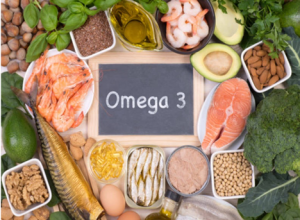IS YOUR CHILD SUFFERING FROM ADHD?

Here’s a list of foods to add and/or avoid…
25th January, 2020
It’s a disorder that’s still not taken too seriously, but one that can create havoc if not detected and kept under control. ADHD (Attention Deficit Hyperactivity Disorder) not just affects brain development in a child, but also his/her ability to pay attention and sit still. Around 2-4% of children (more boys than girls) suffer from this disorder that very often persists till adult life.
While there is no ‘one-size-fits-all’ diet that’s proven to help kids with ADHD, many studies have shown a correlation between food and brain function. Like the “sugar rush” you hear many parents complaining about… it is a real thing.
The key is to figure out what the trigger foods are, and to look for healthier alternatives. Like Dr. Nilesh Shah, psychiatrist at Sion Hospital, rightly says, “By and large, additives and food items like chocolates or aerated drinks do not make a child hyperactive. If parents, teachers or friends have observed any such behavioural change, they need to come up with practical solutions, instead of depriving the child of foods he/she likes.”
Foods To Avoid…
- Sugar: Several studies have linked ADHD with sugar consumption. While some have suggested high sugary foods make the child restless or inattentive, others haven’t found a significant relationship between sugar and ADHD symptoms. Our advice would be, limit the intake.
- Artificial colour, sweeteners and preservatives: Since the 1970s, there have been multiple researches on the impact of artificial sweeteners, colour and preservatives on ADHD symptoms. Again, we would say keep track on such intake.
- Allergens: Wheat, soy, milk, corn and the like may create changes in ADHD symptoms.
- Caffeine: Caffeine has interaction with ADHD medications, hence it is important to avoid.
Foods To Add…
- Lean proteins (fish, eggs, chicken, beans, skimmed milk, low fat yoghurt, nuts etc.) Proteins are the building blocks that play a significant role in the functioning of our nervous system. Neurotransmitters—the chemicals released by brain cells for communication with each other—are made up of proteins.
- Foods rich in Iron: Though it is still unclear if deficiency of iron affects symptoms of ADHD, it is an important micronutrient for the well-being of a child that also impacts his/her ability to focus and concentrate.
- Omega 3-rich foods (fish like tuna, sardine, salmon and veg sources like flaxseeds)
- Zinc (beans and nuts). Zinc deficiency has been related to an increase in symptoms of ADHD.
A study conducted in Sweden stated that a daily dose of omega- 3 helped reduce symptoms of ADHD by 50 per cent.
Apart from these basic guidelines, there are certain vitamins which can help manage symptoms of ADHD.
(Please note: this is not a therapy for ADHD—you must consult a psychiatrist if your child suffers from ADHD)




